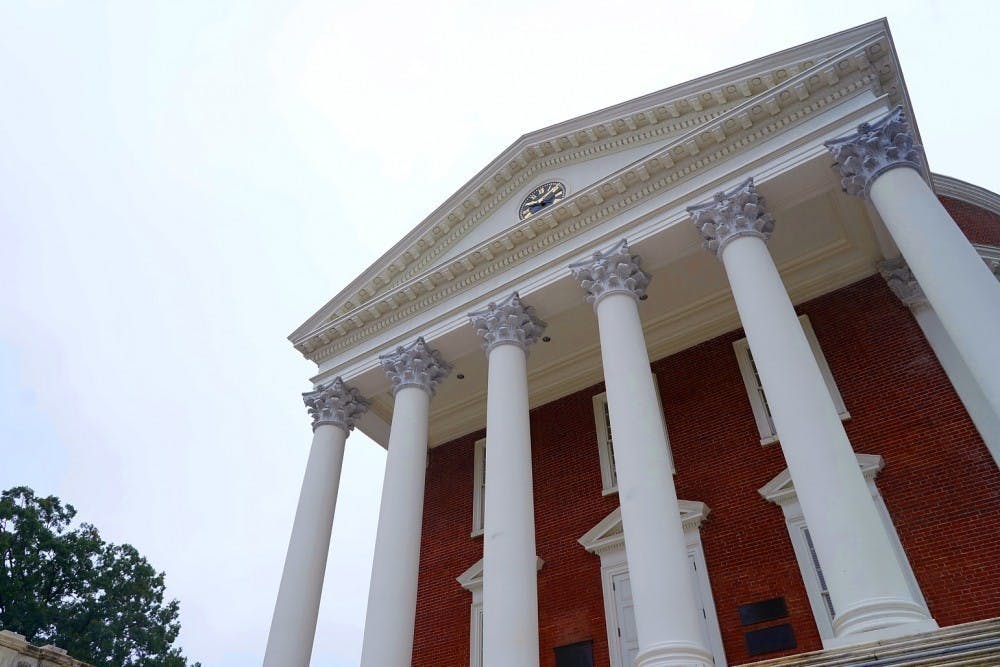The past year at the University has been an unusual one to say the least. At the beginning of the year, we were still living in a mainly virtual world — classes were online, gathering limits were imposed and we watched as new COVID-19 cases reached peak highs. As we returned to Grounds for the fall, we jumped immediately back to in-person life. After completely adjusting our academic lives, we were required to largely forget about Zoom and revert back to the life we had before the onset of the pandemic.
Over the past year we’ve watched the administration’s inaction force students to fight for a more equitable University. Students now have access to a tour, created by History of Enslaved African American Laborers with Bringing Race Into Dialogue with Group Engagement and University Guides, entirely focused on the history of enslaved laborers. The Minority Rights Coalition continued to push for the removal of racist imagery. These are just a few examples of the countless other instances of students fighting for change. This has been a year dominated by student voices calling for support — a duty often overlooked.
As an Editorial Board, we gathered key figures that define the past year.
COVID-19
229: highest number of COVID-19 cases in one single day within the University community
691: days since the first COVID-19 case was confirmed in the United States
97: the percentage of University students vaccinated against COVID-19
2,844: number of COVID-19 cases in the University community this year
0: maximum number of people allowed to gather inside during a February spike in COVID-19 cases
5: milliliters of spit per saliva screening for COVID-19 prevalence testing
Pushes toward Progress
130: historical tours focused on enslaved laborers given to first-year students
17: white supremacists charged in the Unite the Right trial
$25 million: awarded to plaintiffs in the Unite the Right trial
4: racist statues removed from the community with the departure of George Rogers Clark, Lewis and Clark and Sacagewea, Robert E. Lee, “Stonewall” Jackson, along with the many others taken down throughout the Commonwealth this year
$57,765: dollars raised by U.Va. Mutual Aid this year
51,605: eligible voters in Albemarle County who participated in the statewide elections
12,890: Charlottesville City residents who voted in statewide elections
5,440: signatures on a petition to keep using Google Drive instead of Office 365 at U.Va.
8,473: signatures on a petition to allow the Cavalier Marching Band to play at games
9,454: votes in the spring’s Student Council election for Student Council president
Athletic Wins and Losses
18: Cavaliers at the Tokyo Olympics
9: medals won by Hoos at the Tokyo Olympics
744: days since last beating Virginia Tech in football
2: national championships won this year, thanks to women’s swimming and diving and men’s lacrosse
0: number of national championships held by Tech
And More
$14.5 billion: current size of the University’s endowment
2: Corner businesses closed since January — the College Inn and Sheetz
22: community alerts sent out to students regarding crime around Grounds
8.5” by 11”: approximate space limiting Lawn residents’ speech under new policies on door signs
3: number of city managers appointed in Charlottesville
These numbers reflect both good and bad moments the community has seen this year. We raised money for one another due to the University’s failure to address rising tuition and housing costs — especially in light of the increased financial strain caused by the pandemic. Over 3,000 people within the University community tested positive for COVID-19, caused in part by lack of administrative enforcements meant to keep us safe. Student activists, tired of continued inaction, took up the work confronting the University’s racist past — whether through tours focused on enslaved laborers, pressuring the University to remove imagery that glorifies white supremacy or petitions designed to highlight student voices.
We commend the work community members have organized initiated this year to create a better University.
The Cavalier Daily Editorial Board is composed of the Executive Editor, the Editor-in-Chief, the two Opinion Editors, their Senior Associate and an Opinion Columnist. The board can be reached at eb@cavalierdaily.com.





